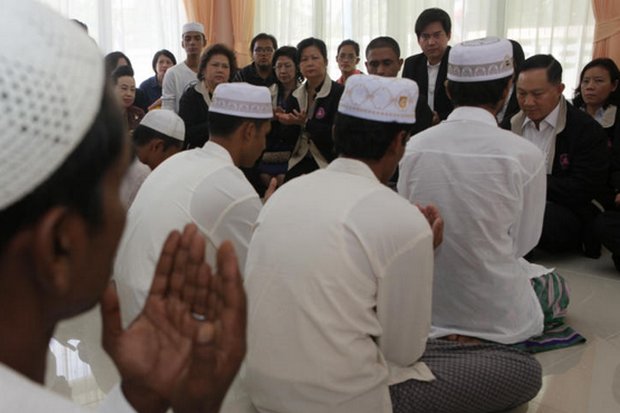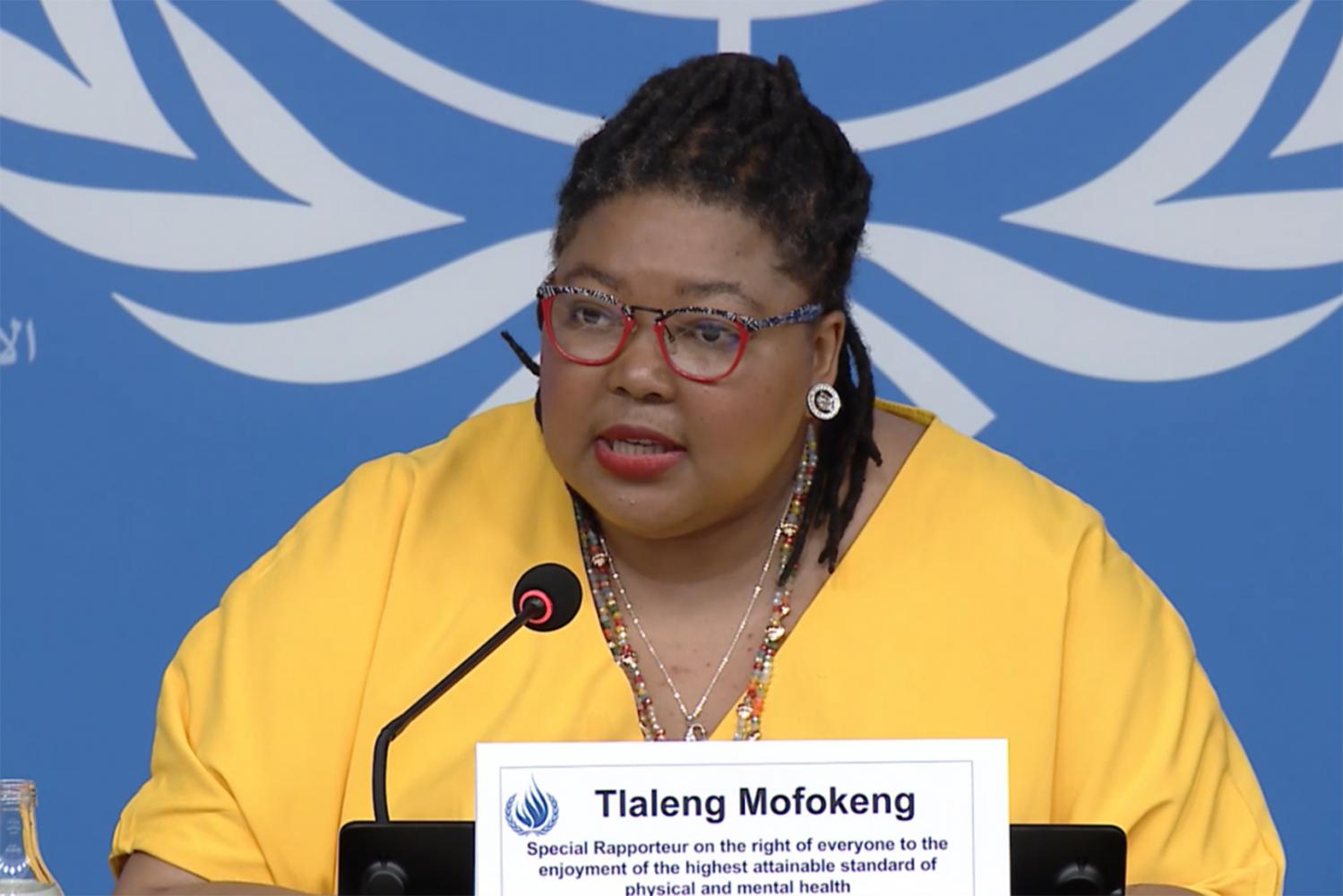
At 46 years old, Basamai, an ethnic Rohingya Muslim man, will for the first time obtain identity documents that will allow him to resettle in the United States next week, along with 23 other trafficking victims.
The 24 to be resettled follow four who left Thailand earlier this month, in a humanitarian programme that has resettled 13,000 Muslims from Myanmar since 2002, according to the US Department of State Refugee Processing Centre.
Mr Basami, who is being split from his wife and eight daughters, was abducted by a group of men -- including Myanmar soldiers -- from his home in Maungdaw township of Myanmar's Rakhine state while he was cutting wood in the forest to sell at the market.
He was beaten and forced by his captors to board a ship, likely headed towards Malaysia, when it was intercepted by police in Thai waters after weeks at sea.
He was held at the Immigration Bureau's detention facility in Ranong for months before he was identified as a trafficking victim and placed in a shelter under the custody of the Ministry of Social Development and Human Security, also in Ranong.
Last week, Mr Basamai was transferred to another shelter in Pathum Thani to await his US departure.
"Soon, I will finally receive documents proving my identity and will be able to carry out daily activities without fear," he told the Bangkok Post Thursday.
The United States will become his home, he said, adding he intends to start a new life.
Though an agricultural labourer back in Myanmar, Mr Basamai says he is eager to develop new skills and will seize any opportunity given to him after he relocates.
Following their arrival in the US -- the exact location remains unknown -- the Rohingya group will undergo Cultural Orientation Training before they can be resettled, said a source from the Ministry of Social Development and Human Security.
They will be provided English language lessons, as well as sufficient time and space to adapt physically, psychologically and culturally, said the source.
"It will be a fresh start for them, and they need to be ready."
Meanwhile, a total of 560 Rohingya continue to languish in immigration detention facilities and shelters nationwide.
Their resettlement process can take years, though its duration varies based on their willingness to depart, their health conditions and the progress of their legal case against their traffickers.
The procedure is handled jointly by several state agencies, including the Foreign Ministry, the Ministry of Social Development and Human Security and the Immigration Bureau, as well as international organisations such as the United Nations Refugees Agency (UNHCR) and the International Organisation for Migration (IOM).
UNHCR officers regularly interview trafficking victims in the shelters, and the agency holds English classes for inmates once a month, though Mr Basamai says it is not enough, as he cannot remember any of the vocabulary. The IOM also carries out medical checkups and makes the travel arrangements for those who are to be resettled.
The legal cases of the group of 24 awaiting departure are nearly complete, the source said. The victims have provided testimony to police, and prosecutors now have enough evidence to file a complaint with the court, he said.
A few members of the group suffer from health problems due to the violence and abuse inflicted on them by the human traffickers, which has led to delays in court procedures, the source added.
Mr Basamai said he feels fortunate compared to other trafficking victims. He hopes that one day his wife and eight daughters will be able to join him in the United States.
He says they continue to face persecution in Myanmar and do not dare leave their homes, which means they cannot work there. "Today, they don't know if I'm alive or dead," he said, adding he had no way to contact them to tell them of his resettlement to the United States.



